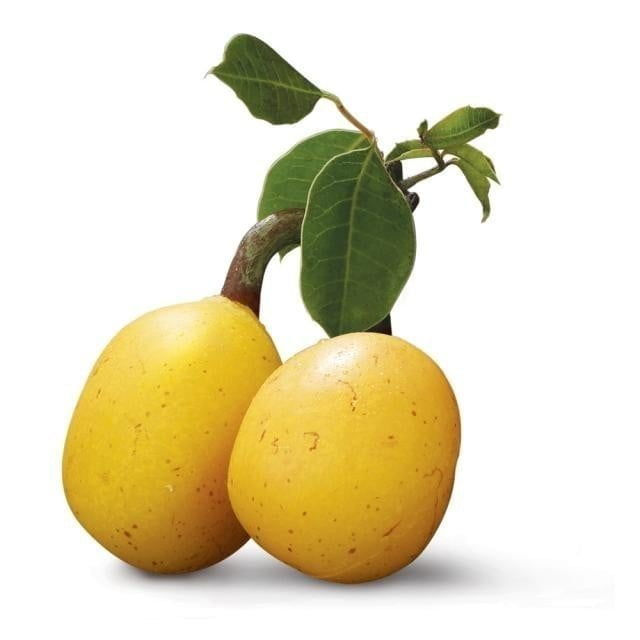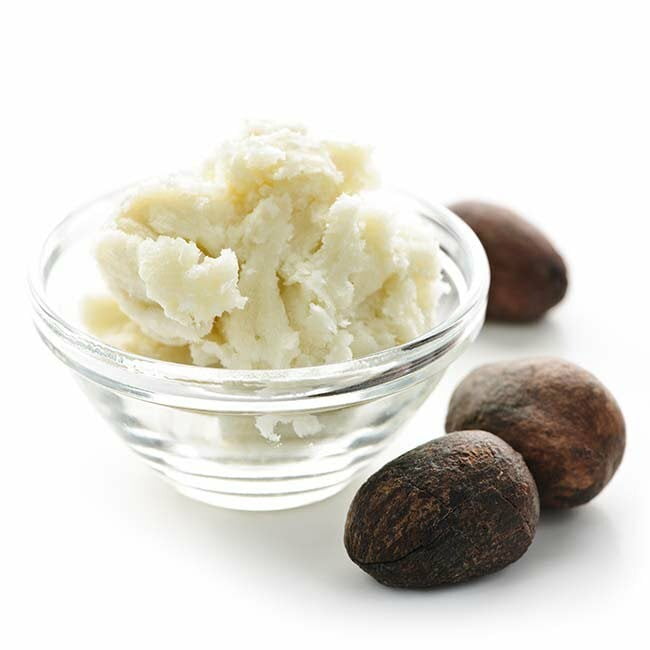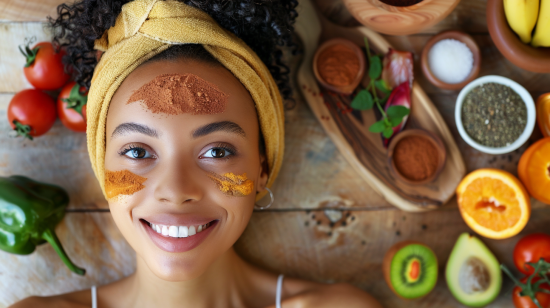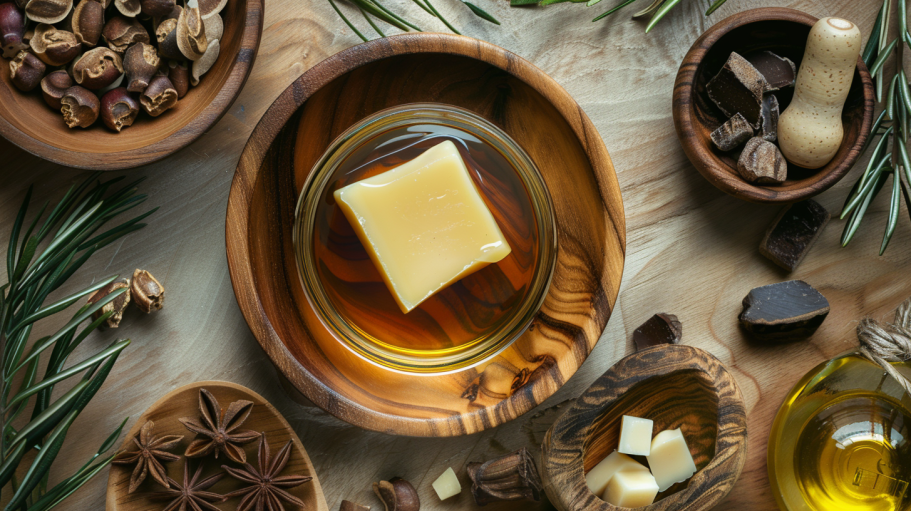Africa, the continent of diversity and resources, has, through the centuries, relied on native plants and botanicals for health and beauty. Besides these treasures, antioxidants from the African plant life are now making their mark on the global skincare circles remarkably. These substances, which were initially developed to survive in harsh conditions, exert incredible effects that cannot be compared to others in terms of effectively dealing with skin aging and damage. These antioxidants protect our skin from radical scavenging in addition to embodying the strength and beauty of the plants they where sourced from.
This article discovers how African antioxidants changed skincare, stressing their noteworthy attributes, some examples, and the broader implications of their utilization both in the field of beauty and community development. The return to the ancient depth of wisdom is not only close to the ancient African one but also the new opportunities for sustainable development and ethical practices in the beauty industry.
Understanding Antioxidants and Skin Health
Antioxidants are substances that can inhibit or delay the damages inflicted by free radicals on a cell, which are unstable molecules produced by the body as a response to environmental and other pressures. In skincare, antioxidants are also crucial as they neutralize these free radicals that cause most skin damage as we age, such as wrinkles, loss of shine, and lessening elasticity.
African botanicals are very rich in antioxidants because of the continent’s unique climate and biodiversity. These plants have adapted to synthesize the most potent defensive compounds to withstand the hostile conditions in which they grow, making them beneficial as skincare ingredients.
Key African Ingredients Rich in Antioxidants
Rooibos (Aspalathus linearis)
Native to South Africa’s Fynbos region, rooibos is famed not only for its use as an herbal tea but also for its skincare benefits. It contains a unique antioxidant called astaxanthin, which is rarely found in other plants. Rooibos is known to soothe the skin, reduce inflammation, and fend off free radicals.
Marula Oil (Sclerocarya birrea)
Extracted from the nuts of the marula tree, which is indigenous to West and Southern Africa, marula oil is a miracle ingredient for the skin. It is rich in antioxidants like vitamin C and vitamin E, omega fatty acids, and amino acids. These components hydrate the skin, improve its elasticity, and provide a barrier against pollution and other environmental aggressors.

Marula oil
Marula oil, cold pressed, is a rich source of essential fatty acids Sometimes people call it the elixir of youth, and compare it to argan oil. However, Marula oil is much lighter and has a more subtle scent. It contains tocopherols which exhibit antioxidant properties.
Baobab (Adansonia)
The baobab tree, often called the “Tree of Life,” is found across Africa, and its fruit is among the most antioxidant-rich foods in the world. Baobab oil is packed with vitamins A, D, E, and F, which help to rejuvenate damaged skin cells and promote skin moisture retention.
Shea Butter (Vitellaria paradox)
Widely used in cosmetics for its moisturizing properties, shea butter also offers considerable antioxidant benefits. It is high in catechins, the same antioxidants found in green tea, and provides natural protection against UV radiation.

Shea Butter (Karité Butter)
Pure, full-value Shea butter for cosmetic use. It has a fresh and original composition, which guarantees a high content of vitamins A and E responsible for delaying skin aging processes. The Shea butter from our offer has the proper scent, color, and consistency because it is not diluted with other oils.
Scientific Research and Efficacy
Recent scientific research has recently begun to confirm what many African communities have known for ages. Study shows that antioxidants present in these indigenous plants can improve overall skin health because they boost the cell regeneration process, reduce inflammations and protect the skin from sun damage and aging.
For example, an article has been published in the Journal of Ethnopharmacology which revealed that rooibos extract decreases the signs of aging in skin cells. This benefit has, however, been ascribed to the high antioxidant content of the herb. Similarly, medical studies with marula oil have shown its ability to increase skin moisture and elasticity due to its high content of fatty acids and antioxidants.

Impact on Local Communities and Sustainability
The increasing international demand for natural as well as ethically sourced skincare ingredients, on the other hand, is something that poses serious concerns to the economies of Africa. The commercialization of plants that are native to the community, such as rooibos, marula, baobab, and shea, not only helps the local farming but also gives the small-scale farmers and women cooperatives the opportunity to diversify their activities.
Nevertheless, there is a growing interest in these products alongside the demand, so there is a need to begin harvesting and producing these ingredients sustainably. Efforts are being made to guarantee that prosperity spreads throughout the local communities without hurting the environment. These include fair trade practices, organic certification, and sustainable agriculture, which support biodiversity conservation.
Conclusion
Incorporating African antioxidants in modern skincare is an example of the significant link that exists between traditional knowledge and current scientific research fields. Besides the fact that it is suitable for personal care, this trend has more significance to the sustainable growth of the communities around Africa.
With more and more global markets opting for the consumption of natural and ethically sourced ingredients, the local economy is not only boosted, but also the stewardship of biodiversity is promoted. The benefits of this burgeoning interest must be shared equitably with those who cultivate and harvest these resources, ensuring their work is sustainable and environmentally conscious. In embracing African antioxidants, the skincare industry is not just adopting potent natural ingredients; it is also supporting a more significant movement towards global wellness and ethical consumerism.
References
Azevedo Martins, T. E., Sales de Oliveira Pinto, C. A., Costa de Oliveira, A., Robles Velasco, M. V., Gorriti Guitiérrez, A. R., Cosquillo Rafael, M. F., … & Retuerto-Figueroa, M. G. (2020). Contribution of topical antioxidants to maintain healthy skin—A review. Scientia Pharmaceutica, 88(2), 27.
Desam, N. R., & Al-Rajab, A. J. (2021). The importance of natural products in cosmetics. Bioactive natural products for pharmaceutical applications, 643-685.
Michalak, M. (2022). Plant-derived antioxidants: Significance in skin health and the ageing process. International journal of molecular sciences, 23(2), 585.


